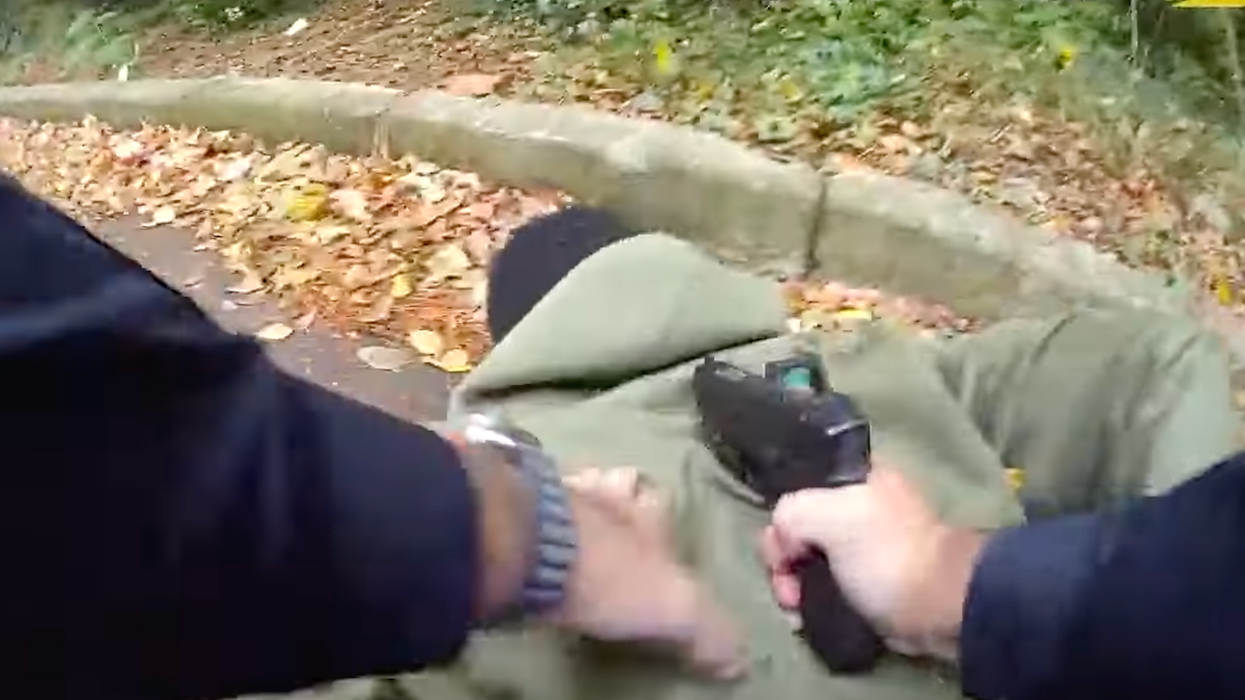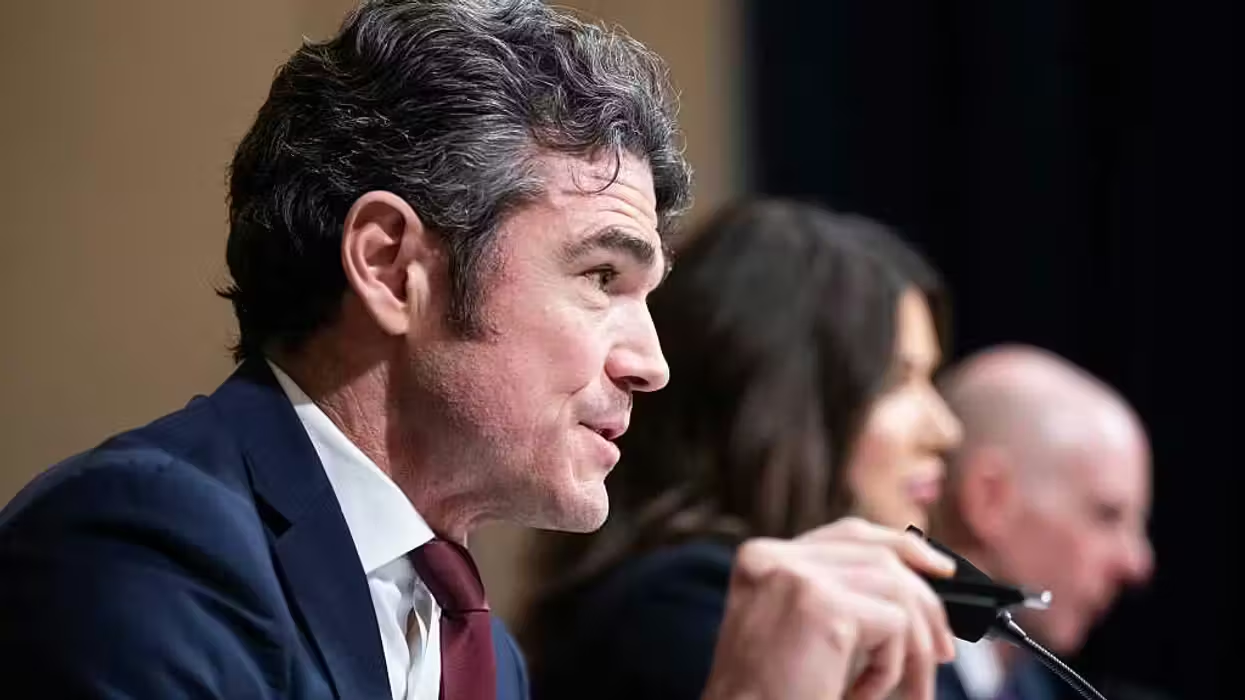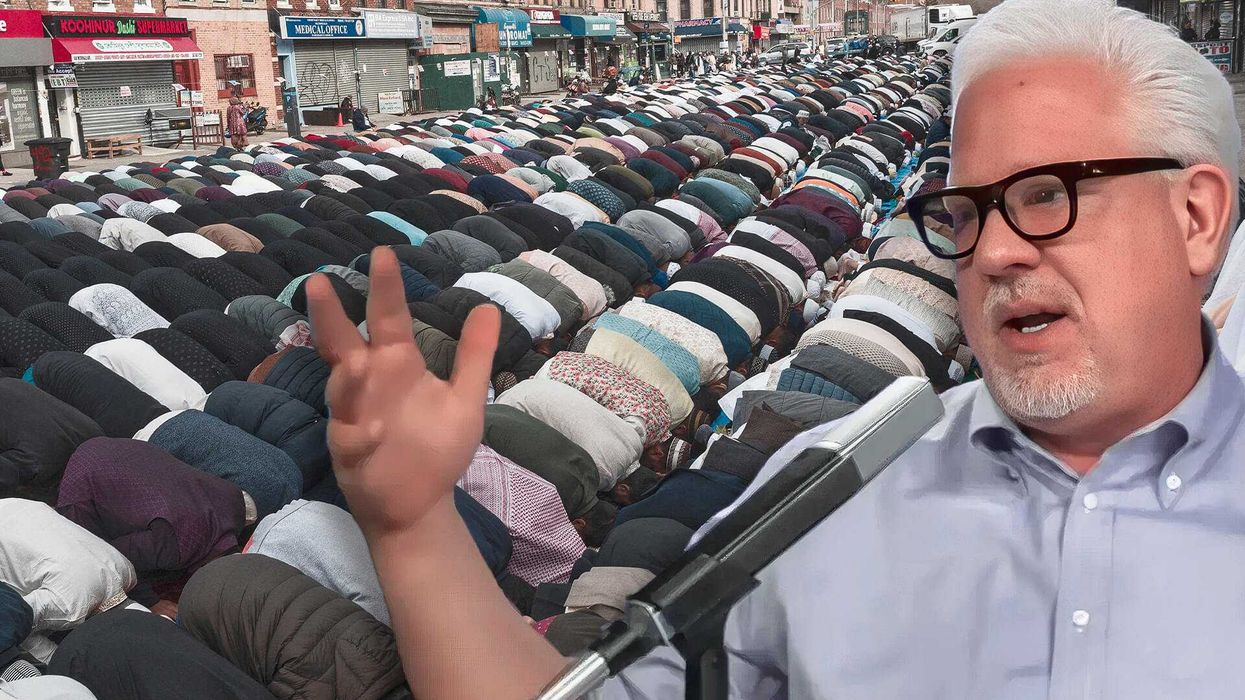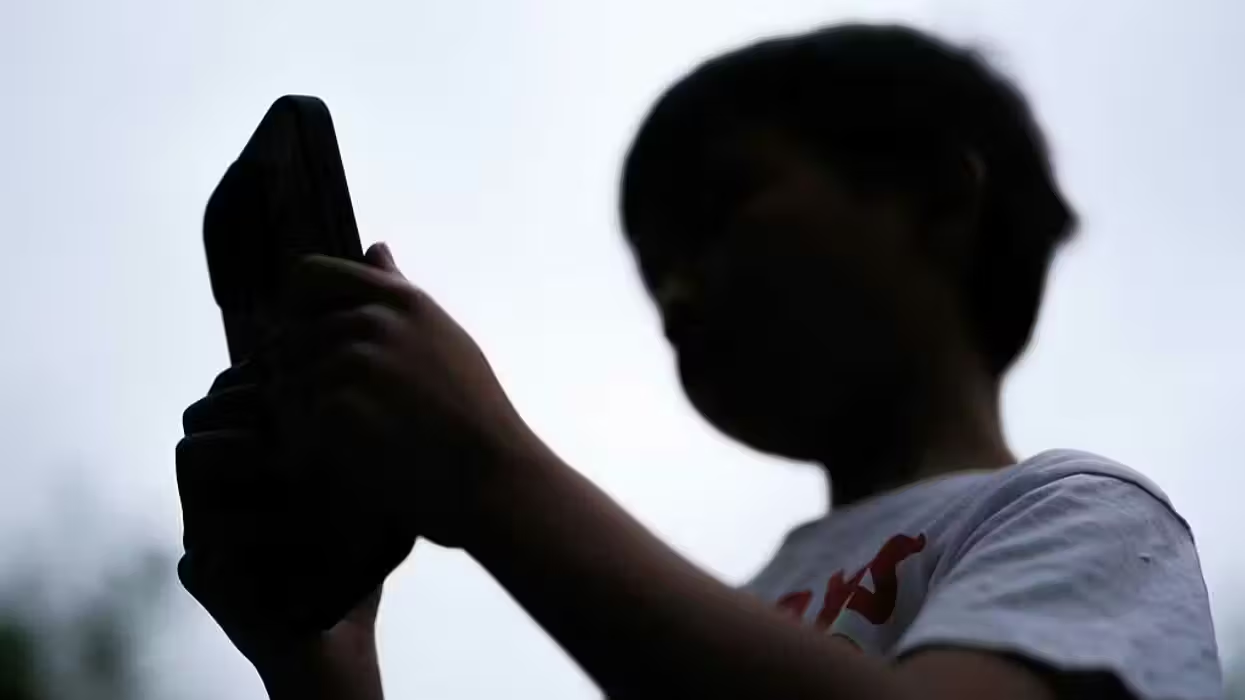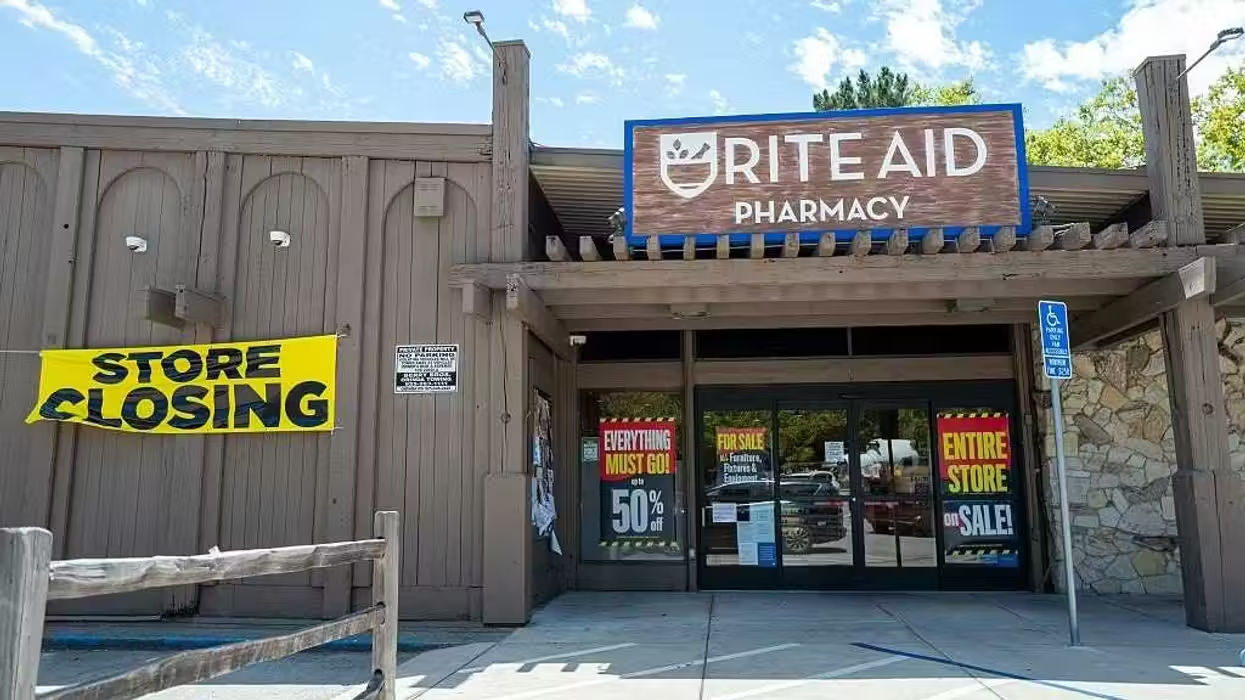ENNISKILLEN, Northern Ireland (TheBlaze/AP) -- Russian President Vladimir Putin told President Barack Obama on Monday that their positions on Syria do not "coincide" but the two leaders said during the G-8 summit that they have a shared interest in stopping the violence that has ravaged the Middle Eastern country during a two-year-old civil war.
However, many are describing the two leaders' meeting as "awkward" and have taken notice of their body language. Take a look:

 US President Barack Obama (L) holds a bilateral meeting with Russian President Vladimir Putin during the G8 summit at the Lough Erne resort near Enniskillen in Northern Ireland, on June 17, 2013. The conflict in Syria was set to dominate the G8 summit starting in Northern Ireland on Monday, with Western leaders upping pressure on Russia to back away from its support for President Bashar al-Assad. Credit: AFP/Getty Images
US President Barack Obama (L) holds a bilateral meeting with Russian President Vladimir Putin during the G8 summit at the Lough Erne resort near Enniskillen in Northern Ireland, on June 17, 2013. The conflict in Syria was set to dominate the G8 summit starting in Northern Ireland on Monday, with Western leaders upping pressure on Russia to back away from its support for President Bashar al-Assad. Credit: AFP/Getty Images
 President Barack Obama meets with Russian President Vladimir Putin in Enniskillen, Northern Ireland, Monday, June 17, 2013. Obama and Putin discussed the ongoing conflict in Syria during their bilateral meeting. Credit: AP
President Barack Obama meets with Russian President Vladimir Putin in Enniskillen, Northern Ireland, Monday, June 17, 2013. Obama and Putin discussed the ongoing conflict in Syria during their bilateral meeting. Credit: AP
 President Barack Obama meets with Russian President Vladimir Putin in Enniskillen, Northern Ireland, Monday, June 17, 2013. Obama and Putin discussed the ongoing conflict in Syria during their bilateral meeting. Credit: AP
President Barack Obama meets with Russian President Vladimir Putin in Enniskillen, Northern Ireland, Monday, June 17, 2013. Obama and Putin discussed the ongoing conflict in Syria during their bilateral meeting. Credit: AP
 US President Barack Obama (L) holds a bilateral meeting with Russian President Vladimir Putin during the G8 summit at the Lough Erne resort near Enniskillen in Northern Ireland, on June 17, 2013. The conflict in Syria was set to dominate the G8 summit starting in Northern Ireland on Monday, with Western leaders upping pressure on Russia to back away from its support for President Bashar al-Assad. Credit: AFP/Getty Images
US President Barack Obama (L) holds a bilateral meeting with Russian President Vladimir Putin during the G8 summit at the Lough Erne resort near Enniskillen in Northern Ireland, on June 17, 2013. The conflict in Syria was set to dominate the G8 summit starting in Northern Ireland on Monday, with Western leaders upping pressure on Russia to back away from its support for President Bashar al-Assad. Credit: AFP/Getty Images
Obama acknowledged in a bilateral meeting with Putin in Northern Ireland that they have a "different perspective" on Syria but he said that both leaders wanted to address the fierce fighting and also wanted to secure chemical weapons in the country. The U.S. president said both sides would work to develop talks in Geneva aimed at ending the country's bloody civil war.
"We do have differing perspectives on the problem but we share an interest in reducing the violence, securing chemical weapons and ensuring that they're neither used nor are they subject to proliferation," Obama said. "We want to try to resolve the issue through political means if possible."
Putin said "of course our opinions do not coincide, but all of us have the intention to stop the violence in Syria and to stop the growth of victims and to solve the situation peacefully, including by bringing the parties to the negotiations table in Geneva. We agreed to push the parties to the negotiations table."
While Putin has called for negotiated peace talks, he has not urged Syrian President Bashar Assad to leave power, and he remains one of Assad's strongest political and military allies. The White House did not expect any breakthrough with Putin on Syria during the gathering of the Group of Eight Summit at a lakeside golf resort near Enniskillen and the meeting further highlighted the rift between the two countries on how to address the fighting in the country.
Obama announced Friday that the U.S. would start sending weaponry, while Britain and France remained concerned that the firepower might end up helping anti-democratic extremists linked to Iran and Lebanon's Hezbollah militia. Putin has defended Russia's continuing supply of weapons to Assad's military.
At least 93,000 people have been killed in Syria's conflict since it erupted in March 2011, according to a recent U.N. estimate. Millions have been displaced.
The European Union has also allowed a weapons embargo against Syria to expire, allowing members of the 27-nation bloc to arm the rebels. France and Britain are moving in that direction, but the German government opposes such a move.
Assad warned that Europe "will pay a price" if it delivers weapons to rebels who are trying to topple his government. In an interview with the German daily Frankfurter Allgemeine Runschau published Monday, Assad dismissed the Obama administration's contention that the Syrian army used chemical weapons against the rebels.
British Prime Minister David Cameron said following a meeting with Putin on Sunday that the West needs to unite behind a diplomatic push that transitions Assad from power.
Obama's discussions with Putin capped a busy day that included a preview of future negotiations toward a broad trade deal with the European Union and speech in Belfast where he called peace in Northern Ireland a "blueprint" for those living amid conflict around the world.
Pointing to potential economic benefits, Obama said the U.S. would host the first round of negotiations on the trade deal with the European Union next month in Washington. The agreement aims to forge a free trade pact designed to slash tariffs, boost exports and fuel badly needed economic growth.
Obama predicted the parties would need to overcome sensitivities on both sides of the Atlantic Ocean. While leaders would be giving strong mandates to their negotiators, Obama said he suspected the leaders themselves would need to intervene at certain points to work through hang-ups.
At the start of his European trip, Obama noted the progress of peace in Northern Ireland and summoned young people at Belfast's Waterfront Hall to take responsibility for their country's future, warning that there is "more to lose now than there's ever been."
"The terms of peace may be negotiated by political leaders, but the fate of peace is up to each of us," Obama said near a glass-fronted building, which would never have been built during the city's long era of car bombs.
(H/T: Daily Mail)
–
[related]



